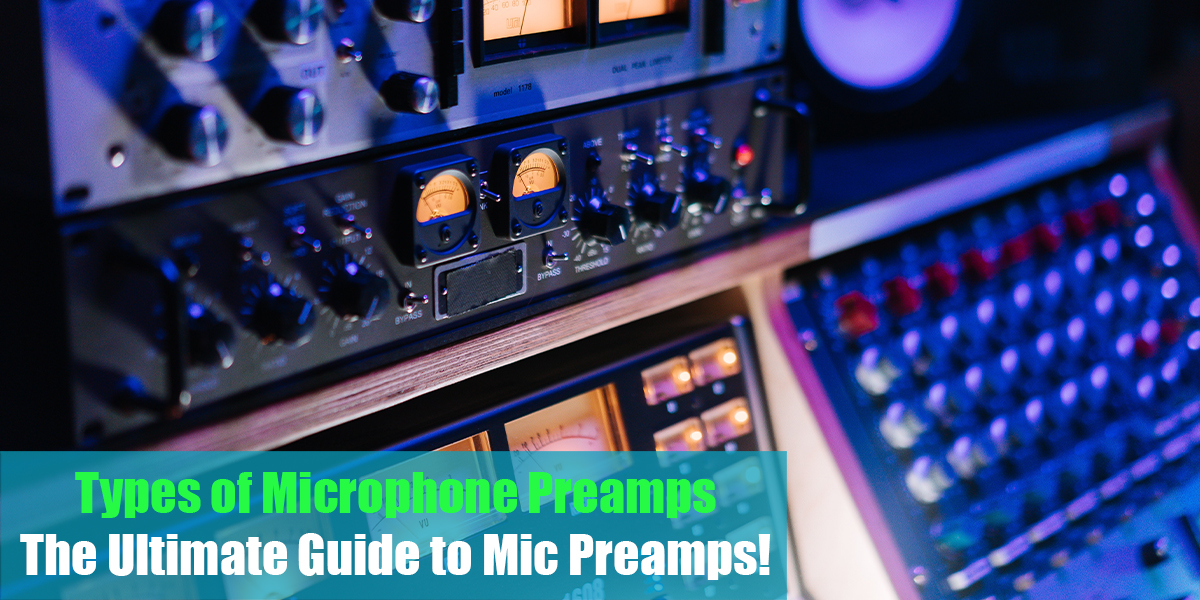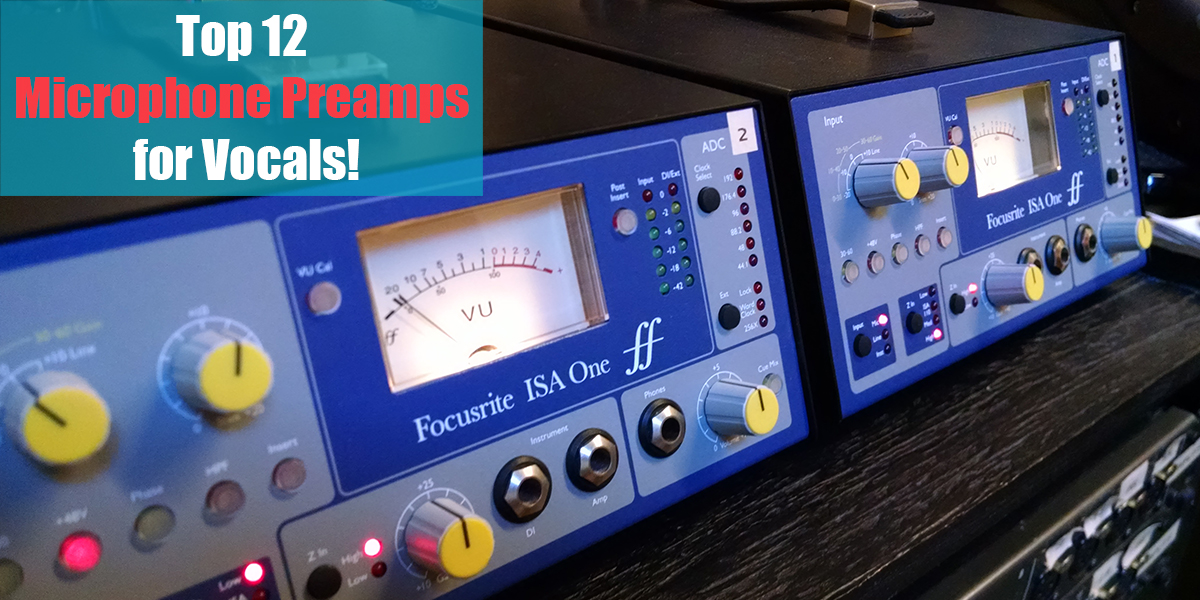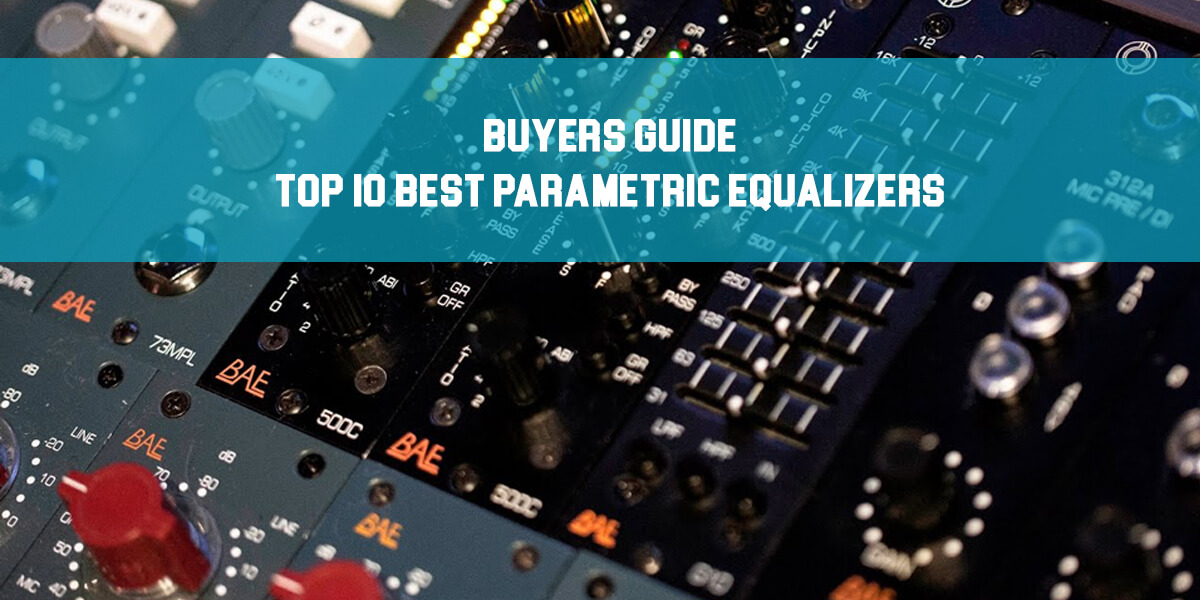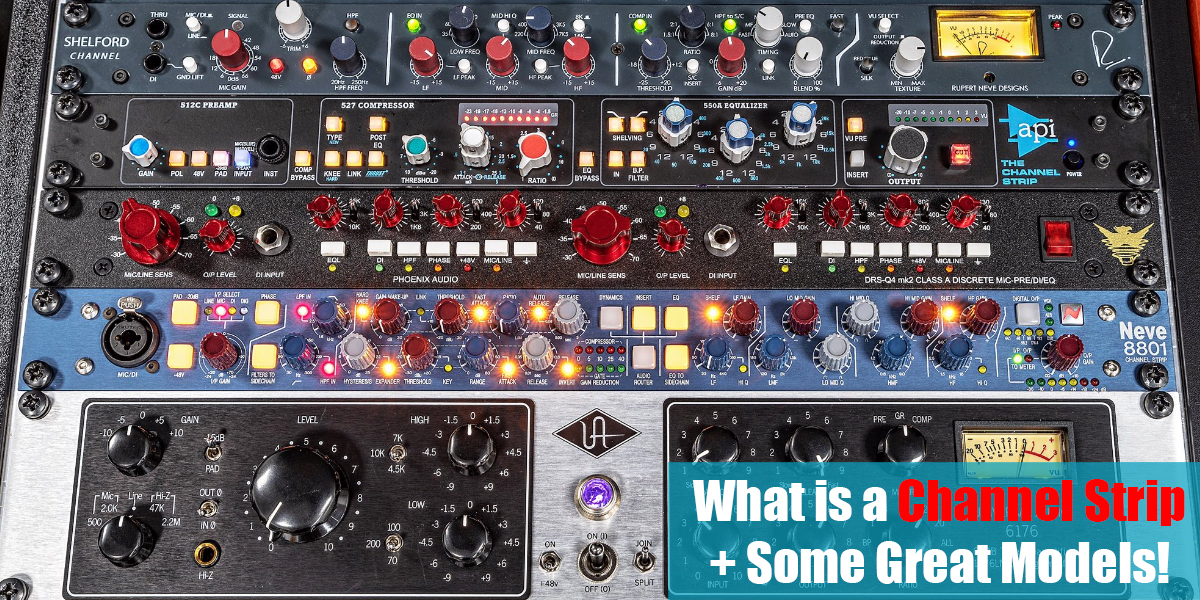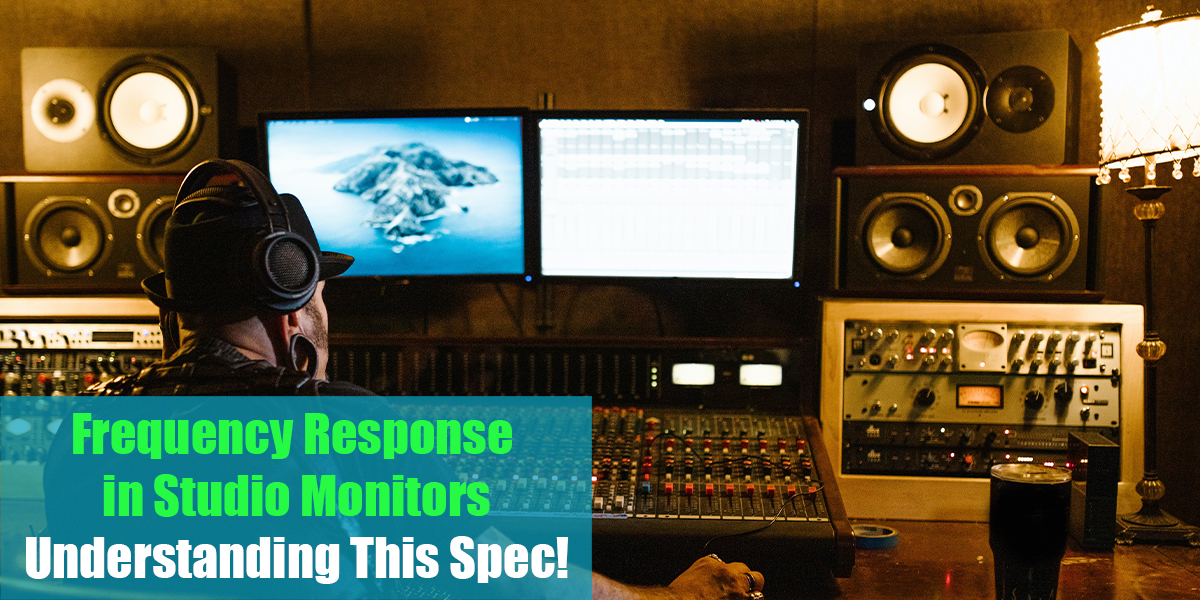Best USB Microphones
Introduction
USB mics are a great alternative to usual XLR microphones because of their ease of use and truly low price factors. For that reason, many individuals go for these cheap plug-and-play mics.
How do USB mics work? USB microphones, as transducers, work the same as every other mic by changing sound (mechanical wave power) into audio (electrical power). Analog audio signals are then amplified and transformed into digital signals inside the USB mic’s built-in audio interface and outputted through a USB connection.
Due to this fact, the USB microphone should have an analog-to-digital converter constructed into its design to transform the analog signals from its transducer element into digital signals for the output.
So then, a USB microphone will be regarded as a microphone with a built-in digital audio interface that will connect to a pc (or any digital audio system) through a USB connection.
We just want to let you know that we’ll list these best USB microphone reviews in no particular order. They’ll be randomized as we don’t wish to sort them from best to worst.
Listed below are our Top 11 Best USB Microphones for 2023:
1. Rode NT-USB
Rode NT-USB is, without doubt, one of the finest USB mics that beat anything within the under $200 range. It brings exceptional for USB quality without the necessity for particular drivers or any extra third-party tools. Neither is it overly costly because it offers a strong and sturdy build, not skimping on high-quality parts.
Rode NT-USB delivers fairly an outstanding sound, because of a top-quality cardioid capsule set in a typical studio fashion, only except the mic gives a USB interface. It sounds very pure, clear, and transparent, and doesn’t suffer from these frequent effects similar to popping and sibilance.
The proximity effect is negligible, and it really works from a lot of angles – so forget about the struggle with positioning. One factor we’ve seen is that Rode NT-USB can be much less prone to vibration noise, even with the stock tripod. For best outcomes, you might consider getting an extra suspension kit and shock mount, however, we’ll repeat these are extremely non-obligatory since that tripod thing works much better than expected.
General, this mic merely rocks. It’s comparatively low-cost but it sure beats the crap out of the rivals’ models any time. Rode NT-USB is unarguably the very best microphone alternative at the moment. Once you’ll have it side by side with different computer mics, you’ll notice this. A model with no disadvantages, simple to use, and most significantly, prime quality sound. It’s unimaginable to not grab it.
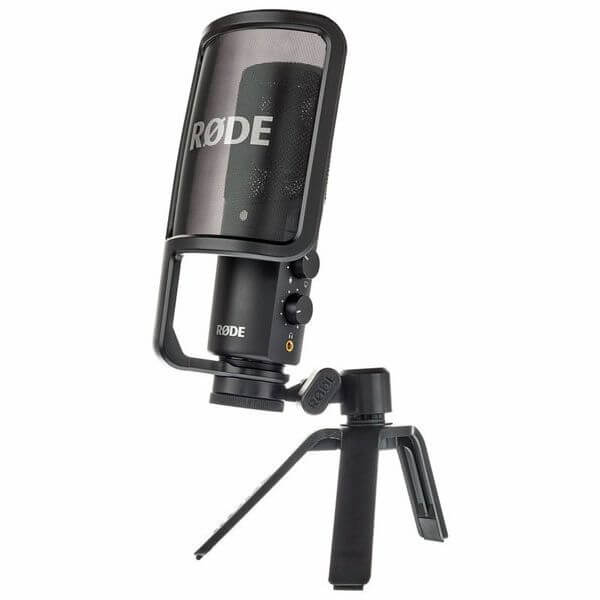
- Dynamic range: 96 dB
- USB powered (5V DC)
- Dimensions: 184 x 62 x 50 mm
- Weight: 520 g
| IMAGE | PRODUCT | Amazon Store | For US Customers |
For EU Customers |
|---|---|---|---|---|
Rode NT-USB |
2. Apogee HypeMiC
The Apogee HypeMic is a cardioid condenser microphone that makes it best for single-point audio recording. But it surely’s the USB connectivity that makes this product nice and super mobile, permitting you to plug into your laptop computer or iOS system (Lightning adapter included) to get recording immediately.
The Apogee HypeMic sets itself other from the other USB microphone competitors by providing analog compression. This, it says, will get you studio-quality recording but at a more affordable value and the benefit of USB connectivity.
You’re going to be paying more than the typical USB microphone for this model. However, then it is quite a bit cheaper than a studio microphone. Regardless of that, you get 24-bit and 96kHz audio recording – something most different models cannot provide.
A kit is included; you will have a tripod, a pop filter, and a decent high-quality carry case to ensure you’re good to go wherever you are. That is aimed toward musicians primarily and could be helpful if you steadily record from totally different locations.
Regardless of the value being more than different USB mics, that is nonetheless comparatively affordable when you think about how close to studio high quality you get without studio tools pricing. So in case, you’re an expert and even somebody new to recording, maybe podcasting, vlogging, and even music – this may very well be an awesome option.
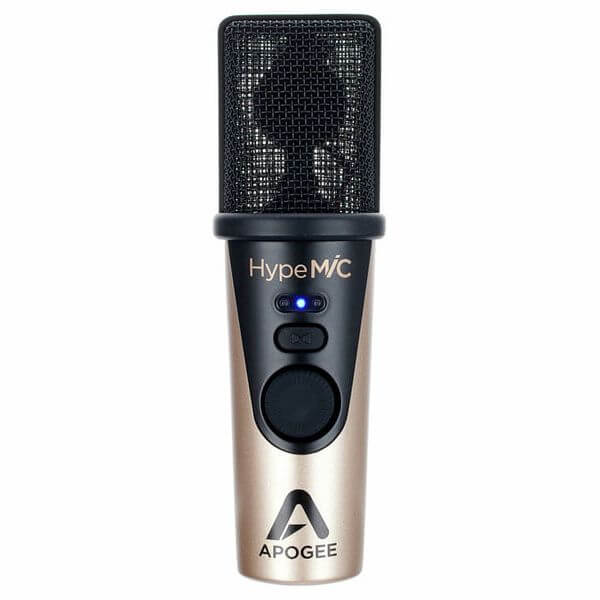
- Blend function for latency-free interception
- Micro USB port
- Dimensions: 124 x 38 x 38 mm
- Weight: 200 g
| IMAGE | PRODUCT | Amazon Store | For US Customers |
For EU Customers |
|---|---|---|---|---|
Apogee HypeMiC |
3. Earthworks Audio ICON
Earthworks Audio has long been identified for its pro studio mics, however, USB microphones for podcasters and gamers are a wholly new realm. At around $349, the Earthworks Audio Icon is priced excessive for the category, although if we have been judging by looks alone, it could be worth each penny, with a fully attractive, webcam-friendly design.
As for audio high quality, the Icon is a single-pattern (cardioid) condenser that makes use of no digital signal processing (DSP), so it delivers a comparatively clear signal. It is perfect in the event you’re comfy utilizing EQ and compression within the mixing process and are in search of a camera-ready mic.
A good portion of the USB mics we take a look at is way cheaper than the Icon, and so they typically feel and look that way, plastic is a common design material. Every part concerning the Icon, alternatively, seems to be and feels thoughtfully designed. The mic itself is gorgeous, fabricated from shiny stainless steel with dramatic cutaways, and a grille that matches the enclosure’s finish.
Internally, the cardioid-pattern 10mm diaphragm gives a frequency range of 20Hz to 20kHz, and may face up to acoustic input up to 132db SPL. It has a depth of 16 bits and a sample rate of 48kHz, practically every different mic we point out in this article exceeds these specs, so particularly given the Icon’s worth, this can be a legitimate shortcoming.
For the cash, the Earthworks Audio Icon will get the vital things right. It delivers a professional DSP-free audio signal that’s light on sculpting. This implies it is not for beginners, or individuals used to working with mics with presets.
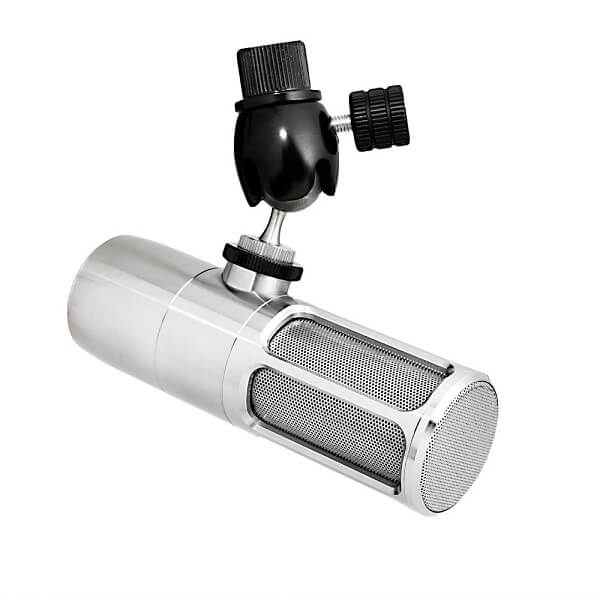
- Power supply: USB bus-powered
- Dimensions (L x D): 141 x 41 mm
- Weight: 680 g
- Color: Stainless steel
| IMAGE | PRODUCT | Amazon Store | For US Customers |
For EU Customers |
|---|---|---|---|---|
Earthworks Audio ICON |
4. AKG Lyra
The AKG Lyra is a really first-rate and well-designed USB condenser microphone for its worth. It is fairly versatile and options nice specs. If you’re happy with it choosing up a little bit of background noise then it’s a really stable option to contemplate.
The sensitivity and a number of polar patterns of the AKG Lyra will be very helpful. For instance, you will be comparatively far away from the mic when talking (a lot additional compared to dynamic mics). It might additionally fairly simply pick up a number of people talking when utilizing its ‘wide stereo’ capture mode.
The AKG Lyra has four buttons. At the front, you’ve got a headphone volume control and a mute button. On the back, you’ve got the polar pattern choice dial and a mic gain dial. On the underside of the AKG Lyra, there’s a USB-C port and a 3.5 mm headphone jack. It additionally comes with a built-in (removable) desk stand, however, the mic may also be mounted on a boom arm or regular mic stand if needed.
It has a 24-bit depth in addition to a 192 kHz sample rate which is impressive. The sound is both on par or higher than most high-quality USB mics. In total, the AKG Lyra is a really first-rate USB mic with a really good design.
This mic performs very well, with nice flexibility for recording in a price range. Nonetheless, for those who’re contemplating selecting a condenser mic like this, keep in mind to keep the potential issues with background noise in thought.
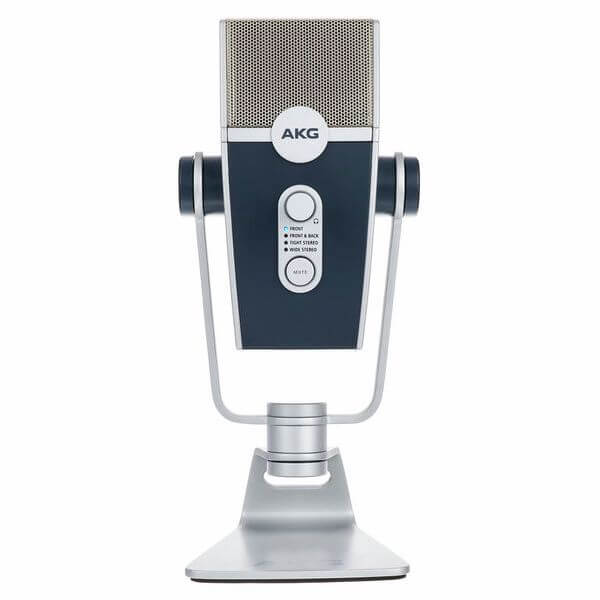
- USB 2.0
- Incl. 2 m USB-C to USB-A cable
- Current consumption: 75 mA via USB
- Weight: 1 kg
| IMAGE | PRODUCT | Amazon Store | For US Customers |
For EU Customers |
|---|---|---|---|---|
AKG Lyra |
5. Rode Podcaster
The Podcaster is available in a well-known, broadcast-style form, with a grille wrapping across the top finish of the mic. However, the body feels much less typical, it has a heavy 1.5-pound construct with a shiny white exterior moderately than the metallic tones we usually see.
Whereas the mic, which measures roughly 8.5 by 2.2 by 2.1 inches (HWD), has a good-looking, spare, professional look, there are some nifty tips up its sleeve. Internally, it employs a shock mount to maintain the 28mm neodymium dynamic capsule from picking up vibrations, in addition to an inner pop filter.
In different words, the 2 most essential accessories which might be usually exterior to the body of the mic, and not always included within the base value are internal right here, and a piece of the microphone itself.
The cardioid-pattern Podcaster’s frequency range is from 40Hz to 14kHz, with a set 18-bit resolution and a sampling rate range of 8 to 48kHz. You may modify it in your computer’s or software program’s settings menu. The Podcaster is an end-address mic, so the stand you utilize will be sturdy enough to deal with its weight when it is angled within the direction of the speaker’s mouth.
To sum up, the Rode Podcaster isn’t an inexpensive mic, but it surely nonetheless represents excellent value. It’s effectively made, properly designed, and does an excellent job of capturing a version of your voice that sounds nice.
The built-in pop filter and shock mount imply there’s much less further gear you’ll need to take full benefit of, and the USB connectivity means you need only the mic and a laptop to begin your personal podcast empire.
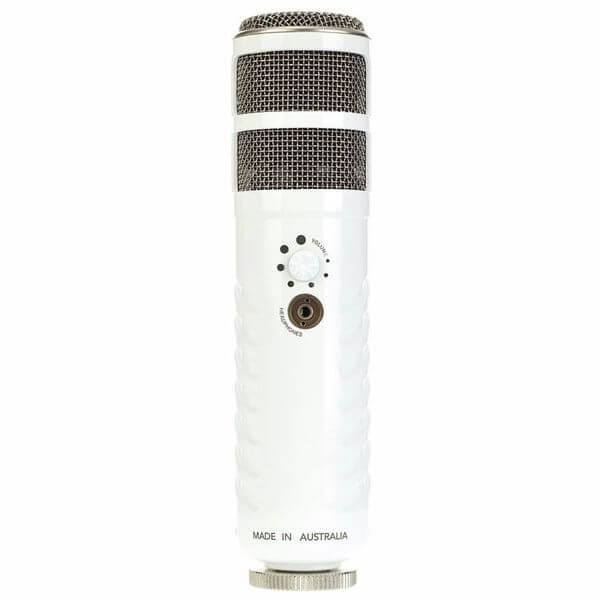
- With a dynamic large-diaphragm capsule
- A/D-D/A Conversion is done in the microphone
- Adjustable headphone amplifier with 3.5 mm jack socket integrated
- Directional characteristics: Cardioid
| IMAGE | PRODUCT | Amazon Store | For US Customers |
For EU Customers |
|---|---|---|---|---|
Rode Podcaster |
6. Audio-Technica AT2020 USB+
This is a superb high-quality plug-and-play mic that connects straight to your computer or laptop computer via a USB port. The ease of use makes it a really perfect alternative for home studio and field recording. Audio-Technica AT2020USB+ goes even further by bringing you the unseen before the superior sound, which makes it correspond to dearer studio units.
AT2020USB+ produces crisp and clear sound compared to various models in the identical worth range, it comes out the winner. The mic has a gentle frequency response that makes it extra-musical. That is truly the most effective curve you’ll ever see on a USB mic.
On a side note, the USB interface itself has a restricted capability, which tends to trigger hindrances for the upper high portion of the spectrum. Thus XLR model of AT2020 with the identical capsule might produce a crispier response.
The primary benefit is it has a headphone output, which permits monitoring with zero latency. This is a useful characteristic for anybody utilizing multi-track recording. AT2020USB+ has two added controls. The first permits controlling the headphone output quantity. The other control brings a fascinating characteristic of mixing the microphone with pre-recorded audio.
It’s also possible to make one or another sound extra outstanding and modify the mixing however you want. The monitor output does deliver a very good quality too, particularly when coupled with a nice piece of headphones.
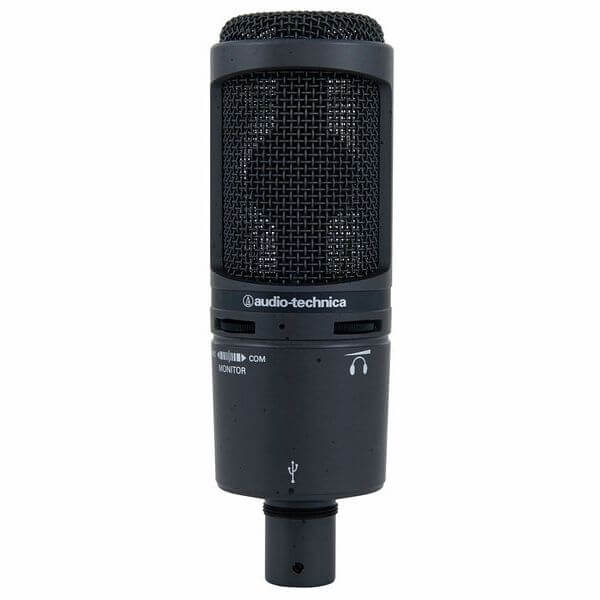
- Frequency range: 20 – 20000 Hz
- Maximum SPL: 144 dB
- Headphone adapter with volume control
- Table stand, mount and 3.1 m USB cable
| IMAGE | PRODUCT | Amazon Store | For US Customers |
For EU Customers |
|---|---|---|---|---|
Audio-Technica AT2020 USB+ |
7. Apogee MiC Plus
Like most of our favorite USB choices, the MiC Plus employs no DSP (digital signal processing) before changing audio to a digital signal, and it sounds wonderful. It may be plugged right into a Mac or Windows PC or used instantly with iOS units. In case you’re thinking about shopping for it, the next query is whether or not you must get the Apogee HypeMiC as an alternative, which incorporates adjustable analog compression in its signal chain.
Beneath the grille, we’ve got what is perhaps described as a reasonably easy USB mic construct, together with a gain knob (which doubles as a mute button) with three multicolor status LEDs above it. There is a 3.5mm headphone jack on the bottom panel and a USB slot.
A Blend button positioned between the gain knob and the status LEDs means that you can modify the headphone mix between a mic-signal-heavy mix and a computer-signal-heavy mix. It is a method to shortly raise or decrease your mic headphone ranges in relation to the audio in your project. The status LEDs additionally grow to be level indicators when adjusting gain. Adjusting the gain is as simple as turning the knob on the front face of the mic.
There is no DSP right here, as talked about, so the 24-bit/96kHz signal has zero compression or EQ added to the mix. Apogee’s fame is constructed totally on its audio interfaces that deal with analog-to-digital conversion.
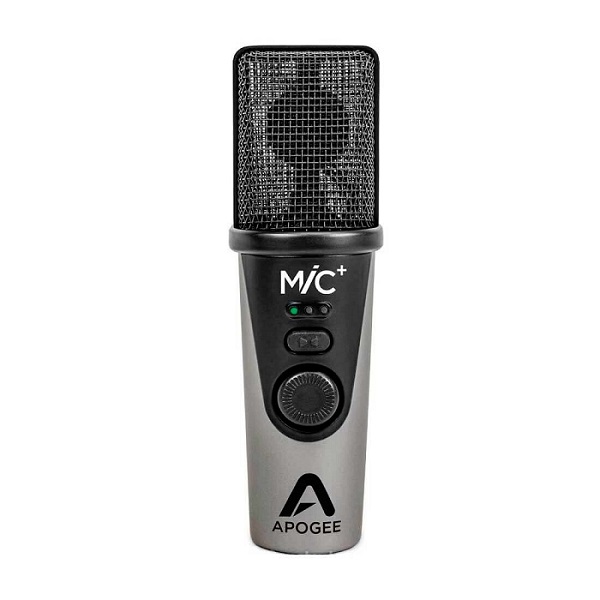
- For iOS, Mac and Windows
- PureDIGITAL connection for sound quality up to 24-bit / 96 kHz
- Dimensions: 124 x 38 x 38 mm
- Weight: 0.2 kg
| IMAGE | PRODUCT | Amazon Store | For US Customers |
For EU Customers |
|---|---|---|---|---|
Apogee MiC Plus |
8. AKG Ara
The AKG Ara has two connection points on its bottom. A 3.5mm analog audio output for headphones and a USB-C port for connecting to a unit. A two-meter USB-C to USB-A cable comes within the box.
To reiterate, the Ara stands primarily on its simplicity of operation and the constancy of its maximum 24-bit/96kHz digital audio high quality. The Ara does have no latency monitoring of the microphones input from the headphone output.
Most USB streaming mics have that function because in case you’re recording or streaming live, it’s very useful to listen to what’s being stated into the mic in real-time in your headphones. Without no-latency monitoring, you’ll have to make use of computer software to watch your microphone and you may get an awfully annoying delay between what you say and what you hear within the headphones.
Because it has two inside condenser capsules (the elements that capture sound) Ara can supply two microphone pickup patterns, selectable from the top knob: Front and Front and Back. The Front capture mode is also called the cardioid pattern; it hones in particularly on sound in front of the mic and is best fitted to recording a single person.
In the meantime, the Front and Back capture mode (aka omnidirectional) picks up sound from throughout the mic, so it will probably equally record two or more folks sitting across from one another or around a desk, or a bunch of musicians or singers.
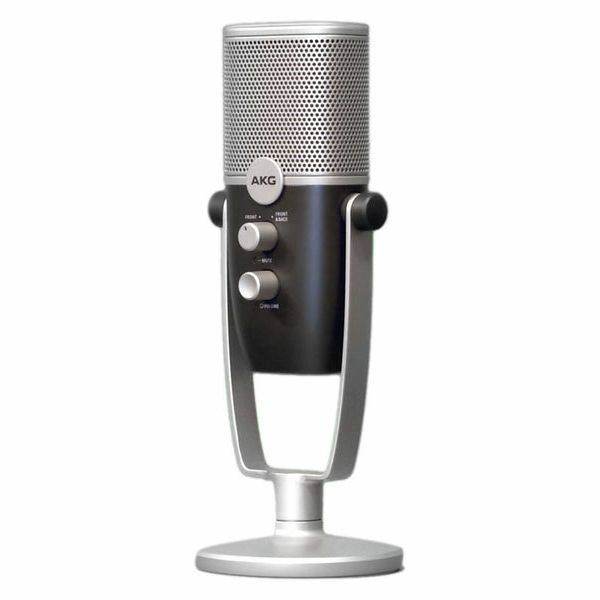
- Power Source: USB bus powered
- Dimensions: 9.05″ x 3.58″
- Weight: 1.46 lbs.
- Included Accessories: Threaded Mic Stand Adapter
| IMAGE | PRODUCT | Amazon Store | For US Customers |
|---|---|---|---|
AKG Ara |
9. SE Electronics Neom
The NEOM USB is designed for all sorts of recording artists, be they musicians, bloggers, or podcasters. With its plug-and-play design, sE touts the microphone as a really perfect answer for these on the move, with an ease-of-use factor that gives pro-sounding audio whatever the environment.
Guaranteeing a formidable high quality of sound, the microphone is able to record at up to 24-bit/192kHz. Boasting a cardioid polar response pattern and a 16mm capsule, the NEOM USB picks up extra of the sound you need and deflects undesirable background noise. This permits creators to capture high-quality ideas the second they hit.
The USB port is located on the base of the microphone, whereas the rear panel houses a mini-jack output for headphone monitoring. In addition, the front of the system is kept minimalist, with a trio of knobs permitting customers complete control over the microphone gain and playback level, minimizing any issues adjusting headphone ranges.
The inside incorporates a 16mm back-electret condenser capsule that gives a cardioid pattern and fairly flat response with a bit of bump around 120Hz and one other at about 12kHz. The frequency response makes it supreme for voices or podcasting, or alternatively as an excellent clear mic to rapidly record instrumental concepts on both an acoustic instrument or in front of a quiet amplifier.
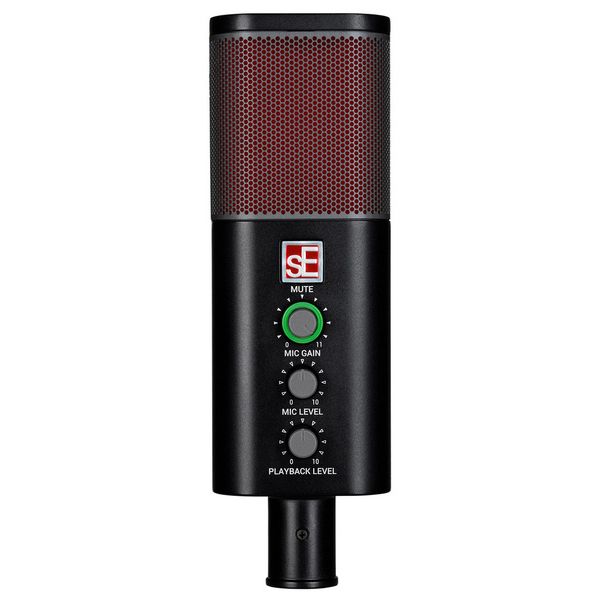
- Compatible with PC/Mac/iPad/Android
- Dimensions: 174 x 56 x 40 mm
- Weight: 0.4 kg
- Incl. table stand, microphone clamp and USB C to USB A cable
| IMAGE | PRODUCT | DETAILS | For US Customers |
For EU Customers |
|---|---|---|---|---|
SE Electronics Neom |
|
10. Shure MV7
The Shure MV7 is certain to be adored by skilled podcasters, streamers, and DIY musicians alike. It houses a headphone jack alongside an XLR and MicroUSB output, which might all be used simultaneously.
The touch panel appears cool, albeit just a little out of place on this traditional microphone design, however, we discovered it is much less effective than customary knobs, dials, and switches. It’s exhausting to make quantity adjustments when talking because doing so requires two hands, one to hold the mic and the other to slip alongside the touch panel.
Though the method isn’t laborious, the issue lies in how touching the mic introduces undesirable noise into the recording. If it’s good to alter your gain, make certain that your mic stops moving before you begin recording again.
You too can alter the frequency response of the microphone with three presets tilted Dark, Natural, and Bright. Different choices embrace primary controls like a mic mute toggle and a monitor mix slider. The latter allows you to increase or decrease the loudness of your voice via your headphones. If you happen to fancy yourself extra of a pro, click over to the guide side.
The Shure MV7 houses a dynamic cartridge with a cardioid pickup pattern, which rests atop a shock mount. Dynamic microphones can take just a little bit of abuse without incurring any inner damage, and they’re much less delicate than their condenser counterparts.
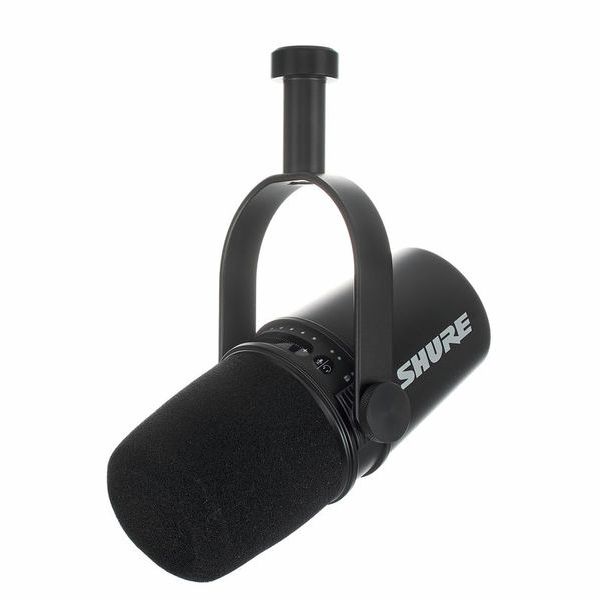
- Dimensions microphone (Ø x L): 66.5 x 53.6 mm
- Dimensions microphone in the bracket (H x L x T): 164 x 153.6 x 90.2 mm
- Weight: 550 g
- Colour: Black
| IMAGE | PRODUCT | Amazon Store | For US Customers |
For EU Customers |
|---|---|---|---|---|
Shure MV7 |
Best USB Mics – 2023 Additions
11. Audio-Technica AT2040USB
The newest USB microphone that can be found on the market at the time of this update is made by Audio Technica, a brand that definitively knows how to make a mic.
There is a mostly all-metal design coupled with a 24-bit/96 kHz sampling rate and a hypercardioid pickup pattern along with a high-resolution A/D converter. This latter feature isolates the user’s voice from the noise of the surrounding environment.
Despite its narrow frequency response, the AT2040 is adequate for spoken voices as its response range is 80Hz to 16KHz. You won’t use this mic for bass or drum recordings, so those extremes of frequency aren’t a concern here.
A warm, clear sound is captured when using the mic’s vocal capturing capabilities. Due to its low sensitivity, boomy bass isn’t a problem for recording up close even when there isn’t a bass roll-off switch.
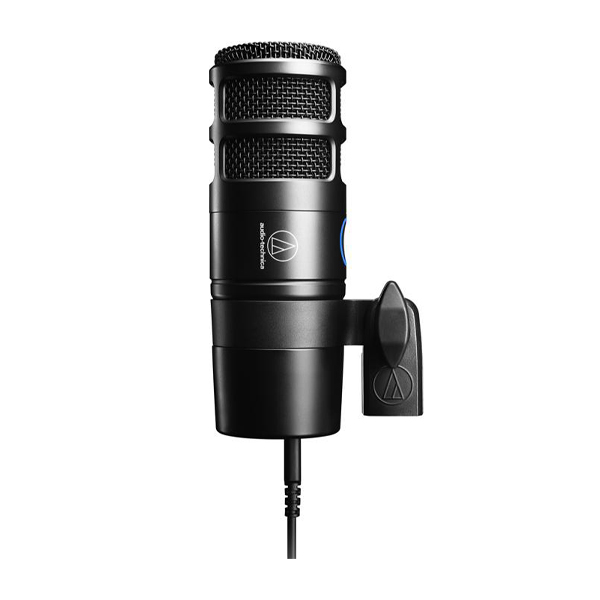
- Connector: USB Type-C
- Power Source: USB bus powered
- Dimensions: 5.72″ x 2.05″
- Weight: 1.35 lbs.
| IMAGE | PRODUCT | For US Customers |
|---|---|---|
Audio Technica AT2040USB |
Conclusion
We understand that a USB microphone might not be the first choice that you will go for when it comes to studio recording and music production, but it is a great alternative for streamers, gamers, and podcasters. Having a relatively cheap price and good quality for the aforementioned purposes, they are the best buy for these uses.
Being plug and play option will relieve the users of any software installations and setups and will be able to use them straight away and start their journey. When it comes to my preference from this list, I can say that I would probably pick the Shure MV7 or the Rode Podcaster for a podcast if I ever make one, since I think these are the best choices for USB mics on the list.
In case you are having any questions in regards to the USB mics topic and the models we mentioned, please let us know in the comment section below and we will be more than happy to answer you!

